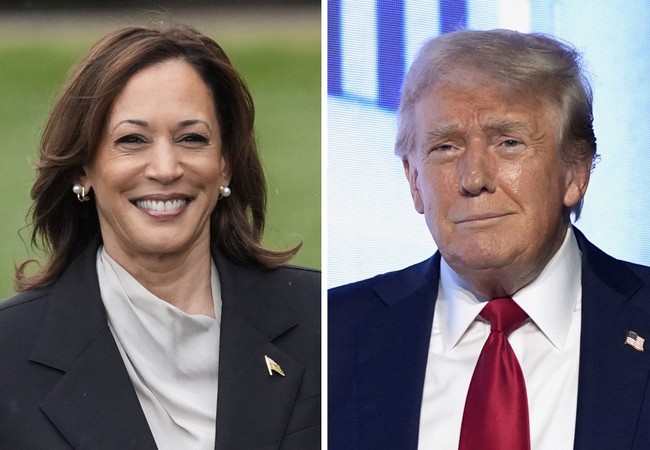
This article was originally published on The Federalist - Elections. You can read the original article HERE
Georgians who care about election integrity have criticized the State Election Board (SEB) for failing to right the problems that were on display in Georgia’s elections in 2020. Tasked with “Investigating the administration of elections and frauds” and “Developing rules and regulations about what constitutes” a legal vote, among other things, the board has a great deal of power in Georgia’s elections.
Until recently, the board has shown a lack of enthusiasm for decisively addressing election integrity concerns — but now control of the board appears to be shifting.
When the board convened on July 9, a new member, Janelle King, sat in the seat formerly held by Ed Lindsey. Lindsey, appointed by Georgia’s GOP House in 2022, stepped down in May, months after it was revealed he had lobbied on behalf of DeKalb and Cobb Counties but failed to recuse himself from ruling on cases involving those counties. Lindsey was also part of the board’s decision not to refer scandal-plagued Fulton County for investigation after the county double-scanned thousands of ballots in its 2020 recount. And in February of this year, the board voted in favor of no-excuse absentee voting — a practice many election experts view as insecure.
The board is comprised of one appointee each from the State House, State Senate, the Democratic Party, and the Republican Party, with the chairman appointed by the governor. Now that Lindsey is gone, the board includes Democratic Party appointee Sarah Tindall Ghazal, outspoken election integrity advocate Dr. Janice Johnston, former Senator Rick Jeffares, Janelle King, and chairman and former Waffle House executive John Fervier. Ghazal is the Democrats’ appointee, while Johnston and Jeffares tend to fall on the side of election integrity advocates. Fervier, whom some activists suspect to be allied with Secretary of State Brad Raffensperger, often voted with Ghazal and Lindsey. King appears to align with Johnston and Jeffares.
Reexamining Fulton County Elections
At the July 9 meeting, Johnston moved to reconsider an explosive case previously adjudicated at the May 2024 meeting where the board found 2020 election misconduct in Fulton County. The board had voted to reprimand the county and appoint a monitor for the 2024 election, at Fulton’s expense.
Fervier immediately ruled Johnston’s motion “out of order,” but after Johnston appealed this decision of the chair, Fervier made a motion for the board to “retire to executive session” to discuss the matter.
In a withering criticism of the call to retire to executive session, Johnston demanded “a complete investigation” of the problems with Fulton County’s election administration in 2020. Just appointing a monitor without further investigation was not enough, Johnston argued, because “there is not sufficient evidence from the investigation to date to identify what needs to be monitored in the 2024 general election.” Nevertheless, three out of the five members motioned to “adjourn to executive session.” The members retired over shouts of objection from the crowd.
Later in the meeting, the board ultimately voted to move the issue to the August meeting, a decision which outraged some onlookers, who by then had apparently grown numerous enough to need an overflow room.

Photo by Tamara Favorito
Voter Qualification Challenges
Activists at the July 9 meeting repeatedly raised concerns about people on Georgia’s voter rolls who appear to not be legally qualified to vote. With elected Georgia Republicans like Secretary of State Brad Raffensperger in denial of some of those issues, and many, if not most, county boards refusing to accept and investigate challenges to those voters, the apparent sea change on the board is a very notable development.
Lucia Frazier from Fulton County cited issues with “over 10,000 duplicate registrations” submitted in 2022, and with registrations at commercial addresses. Her husband Jason Frazier expressed concerns over recent fee increases that make voter data harder to access. He also detailed a recent effort by Forsyth County voters in which their challenge to voters who appeared to have moved and registered in another state was rejected.
Earl Ferguson from Fulton County expressed concerns over the December 2023 rejection of a similar challenge he filed after his 2020 challenge on the same grounds had been accepted.
Their frustration was emblematic of the growing divide between challengers and county boards of elections. Many routinely reject most challenges, on arguably bogus grounds, even when challengers have done all they can to comply with statutory requirements.
Georgians have called for guidance on the handling and administration of those challenges from the board.
Rule Change to Ensure Record Access for County Election Boards
The board’s new makeup is also good news for Georgians who believe county election boards have a duty to thoughtfully examine election processes and results before certifying them, rather than giving results a rubber-stamp. County board members who seek election records to inform this due diligence have been frustrated by county registrars who have either refused to provide access to records or had the nerve to demand payment from members of their own boards of elections for open records requests.
Aiming to resolve that conflict at last week’s meeting, Cobb County GOP Chairman Salleigh Grubbs proposed a rule change that ensures such access. After back and forth with the board and a few exchanges with Chairman Fervier, Grubbs’ motion prevailed.
An ‘Election Integrity Minded Majority’
The meeting was not concluded on July 9 and was scheduled to finish the following day, but was unexpectedly postponed that morning, in what Georgia GOP chair Josh McKoon called a “unilateral, illegal action by the Chairman.” A hastily scheduled conclusion was then set for Friday, July 12 at 4 pm. Ghazal and Fervier did not attend, prompting fury from leftists horrified to see the meeting led by the board’s three conservatives, who approved a rule change expanding the access of poll watchers and one that would require the posting of the number of voters in each county each day of voting.
“Democrats are upset because after YEARS of being able to direct the course of the State Elections Board we have an election integrity minded majority that wants to address the very real election confidence concerns of many Georgians,” McKoon wrote.
Mark Davis is president of Data Productions, Inc., and has been working with voter data since 1986. He has been qualified and admitted to testify as an expert witness on voter data analytics and residency issues in court cases involving disputed elections five times over the last 20 years.
This article was originally published by The Federalist - Elections. We only curate news from sources that align with the core values of our intended conservative audience. If you like the news you read here we encourage you to utilize the original sources for even more great news and opinions you can trust!










Comments